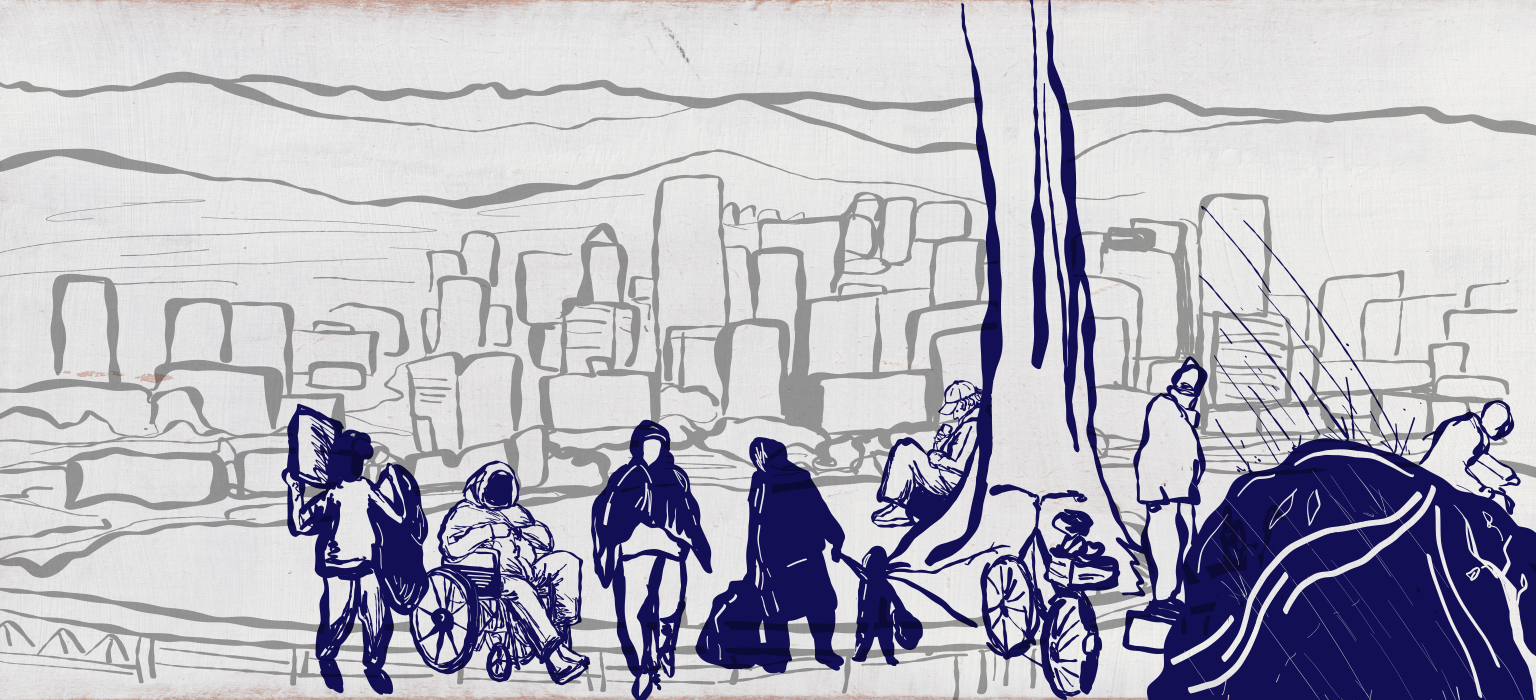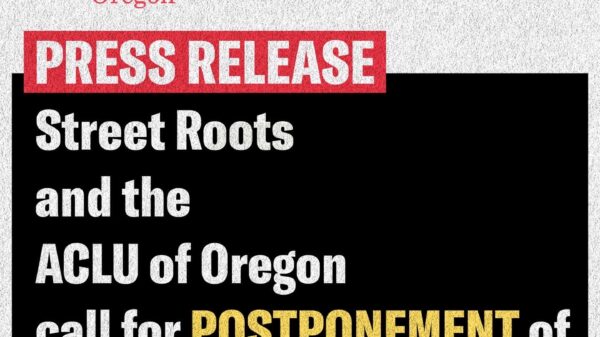Camping ban will criminalize poverty — further impeding real solutions
Last week, Portland City Council voted 4-1 to ban camping on public property, targeting the unhoused community. The ban likely violates the Eighth Amendment as cruel and unusual punishment because the City has not provided sufficient shelter spaces for unhoused people and it ultimately punishes people based on their unhoused status.
Council members voted less than three weeks after the proposal was announced, before Portland community members had sufficient time to learn about the proposal and provide feedback, and before the City could fully flesh out an implementation plan.
Postponing the City Council Vote...
The morning of the vote, the ACLU of Oregon sent the City a notice on behalf of Street Roots asking that the vote be taken after the City Council provided all Portlanders, including houseless Portlanders, a fair process for community engagement. You can read the full notice outlining other legal concerns here.
The City Council did not postpone their vote and passed the camping ban last Thursday. Commissioner JoAnn Hardesty was the sole dissenting voice on the camping ban, questioning the efficacy and safety of the plan.
While we have already pointed to potential First Amendment and Eighth Amendment issues with the City’s policy making process, it’s important for our members to understand where we stand on this issue as a matter of humanity.
Our team at the ACLU of Oregon is a part of your community. We live in neighborhoods throughout the Portland metro area and we see what you see. We also want real solutions to houselessness.
We do not think it is a real solution for the City to create mass camps for houseless people — in fact houseless Portlanders shared serious concerns, including insufficient accommodations and resources for people living with disabilities, mental illness and addictions.
There are programs in the Portland metropolitan area and across Oregon that create real solutions for houselessness — programs like Move-In Multnomah, Project Turnkey, Regional Long-Term Rent Assistance and Portland Street Response. These programs work because they address the root causes of houselessness, including providing access to affordable housing and mental health and addiction support. The City of Portland should expand these types of successful programs across Portland, speed up the development of affordable housing, and help low-income people stay in their current housing instead of being evicted and adding to the houseless on the streets.
Criminalization is expensive and ineffective.
We cannot support a ban on camping, which criminalizes poverty and houselessness. In addition to the legal issues, as a practical matter, wasting limited police and criminal legal resources to cite, arrest and fine houseless people simply does not make sense.

Over the past several years, 50% or more of the Portland Police Bureau’s arrests have been of houseless people. Criminalizing houseless people has not solved houselessness.
To the contrary, criminalization appears to have helped to make the problem worse, further destabilizing houseless people and creating even more financial and legal barriers to obtaining stable housing. Other towns and cities have tried camping bans and their experiences indicate that this approach does not effectively address the houselessness crisis and likely makes it worse.
There are programs in the Portland metropolitan area and across Oregon that create real solutions for houselessness — programs like
The costs of criminalizing people are also expensive — wasting taxpayer dollars without getting people off the streets. Additionally, as many testified last week, forcibly relocating hundreds of people to city-sanctioned camps, without regards to individuals’ needs and how they will be supported, will likely create dangerous conditions for all Portlanders. Other cities that have created sanctioned camping areas spent far more on these areas than what it costs to provide people with the real solution of housing.
Our deep concerns about Portland’s camping ban are aligned with experts at the United States Interagency Council on Houselessness.
In a recent report they wrote (in part):
Criminalizing homelessness is becoming more common. While laws that criminalize homelessness have long been in existence, recent years have witnessed many states and communities across the United States enacting laws that fine and arrest people for doing activities in public that are otherwise legal in the setting of a home: sleeping, sitting, eating, drinking.These policies are ineffective, expensive, and actually worsen the tragedy of homelessness. There is a better way to respond to this crisis.
Here's the bottom line:
The City of Portland needs to invest in solutions that meet the real needs of people who live outside and address root causes, empowering them to voluntarily take steps toward safer and more stable housing.
These solutions currently exist, and the City needs to expand them. Criminalizing poverty and houselessness and wasting taxpayer monies are not real solutions.
Related Content

